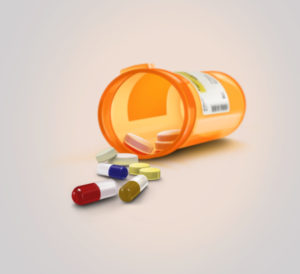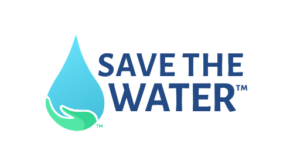
By Erin Fee, Staff Writer and Researcher for Save The Water™ | August 18, 2019
For obvious reasons, we tend to avoid thinking too much about what we flush down the toilet or pour down the drain. But the fact is, much of our wastewater ends up back in our drinking water supply. Of course, water treatment plants test wastewater for contaminants and purify it first. But according to water scientists, a certain type of pollution has been overlooked by treatment plants: pharmaceutical pollution. Both over-the-counter and prescription medicine has found its way into our water supply, and the impact it will have on our health and the environment is still unclear.1
How Does This Happen?
How have pharmaceuticals gotten into our drinking water? Scientists say that ineffective disposal methods, such as flushing unused medicine down the toilet, are to blame. Also, our bodies don’t use 100% of the drugs that we ingest. Traces of pharmaceuticals exit our bodies through excretion and sweat, which will enter the water supply when we shower and flush the toilet.2
Additionally, pharmaceutical pollution occurs at an industrial level. A U.S. Geological Survey from 2004 to 2009 investigated water treatment plants near pharmaceutical manufacturing factories. It was discovered that these plants produced water with a pharmaceutical concentration 10 to 1,000 times higher than the average.3 Industries that use an enormous amount of drugs and antibiotics, such as Concentrated Animal Feeding Operations (CAFOs) that house hundreds of livestock animals in a confined space, are also a significant source of pharmaceutical pollution. You can learn more about CAFOs and water pollution here.3
Are We In Danger?
Concentrations of drugs in water are generally extremely low, measured in parts per trillion.2 Health effects on humans are not out of the question, however. An entire lifetime of exposure to pharmaceutical pollution, even in tiny concentrations, could cause issues. Scientists have observed reproductive and developmental issues in fish exposed to pharmaceutical pollution.2 A study by the United Nations found that the presence of antibiotics in water contributes to the evolution of drug-resistant bacteria.4
Knowledge of the effects of pharmaceutical pollution on health is still developing, but these early findings are troubling.
What Can We Do?
Thankfully, there are several steps you can take to limit your personal impact on pharmaceutical pollution:5
- Don’t dispose of pharmaceuticals by flushing them down the toilet or pouring them down the drain. Powerful narcotics are an exception, so be sure to check if you are unsure.
- Do your bottles of medicine tend to expire before you can use it all? It may be cheaper to buy medicine in bulk, but you can greatly reduce your waste by only purchasing what you will feasibly use.
- Take advantage of the U.S. Drug Enforcement Agency’s national drug take-back days.
- When you throw drugs into the trash, follow proper disposal procedures. Crush the drug and seal it in a plastic bag with some water in it. Also, you can deter animals from the bag by mixing in sawdust, cat litter, or coffee grounds. Finally, remember to remove identifying information from prescription medicine containers.6
References
- Doheny, Kathleen. n.d. “Drugs in our drinking water?” WebMD. https://www.webmd.com/a-to-z-guides/features/drugs-in-our-drinking-water#1
- Boerner, Leigh. May 14, 2014. “The complicated question of drugs in the water.” PBS. https://www.pbs.org/wgbh/nova/article/pharmaceuticals-in-the-water/
- Water Science School. n.d. “Pharmaceuticals in water.” USGS. https://www.usgs.gov/special-topic/water-science-school/science/pharmaceuticals-water?qt-science_center_objects=0#qt-science_center_objects
- Agence France-Presse. April 10, 2018. “Drug waste clogs rivers around the world, scientists say.” The Guardian. https://www.theguardian.com/environment/2018/apr/11/drug-waste-clogs-rivers-around-the-world-scientists-say
- Folk, Emily. January 28, 2019. “The environmental impact of pharmaceuticals in our water.” The Environmental Magazine. https://emagazine.com/pharmaceuticals-in-drinking-water/
- Harvard Health Letter. June 2011. “Drugs in the water.” Harvard Health Publishing. https://www.health.harvard.edu/newsletter_article/drugs-in-the-water

